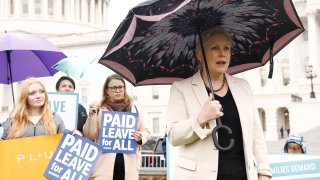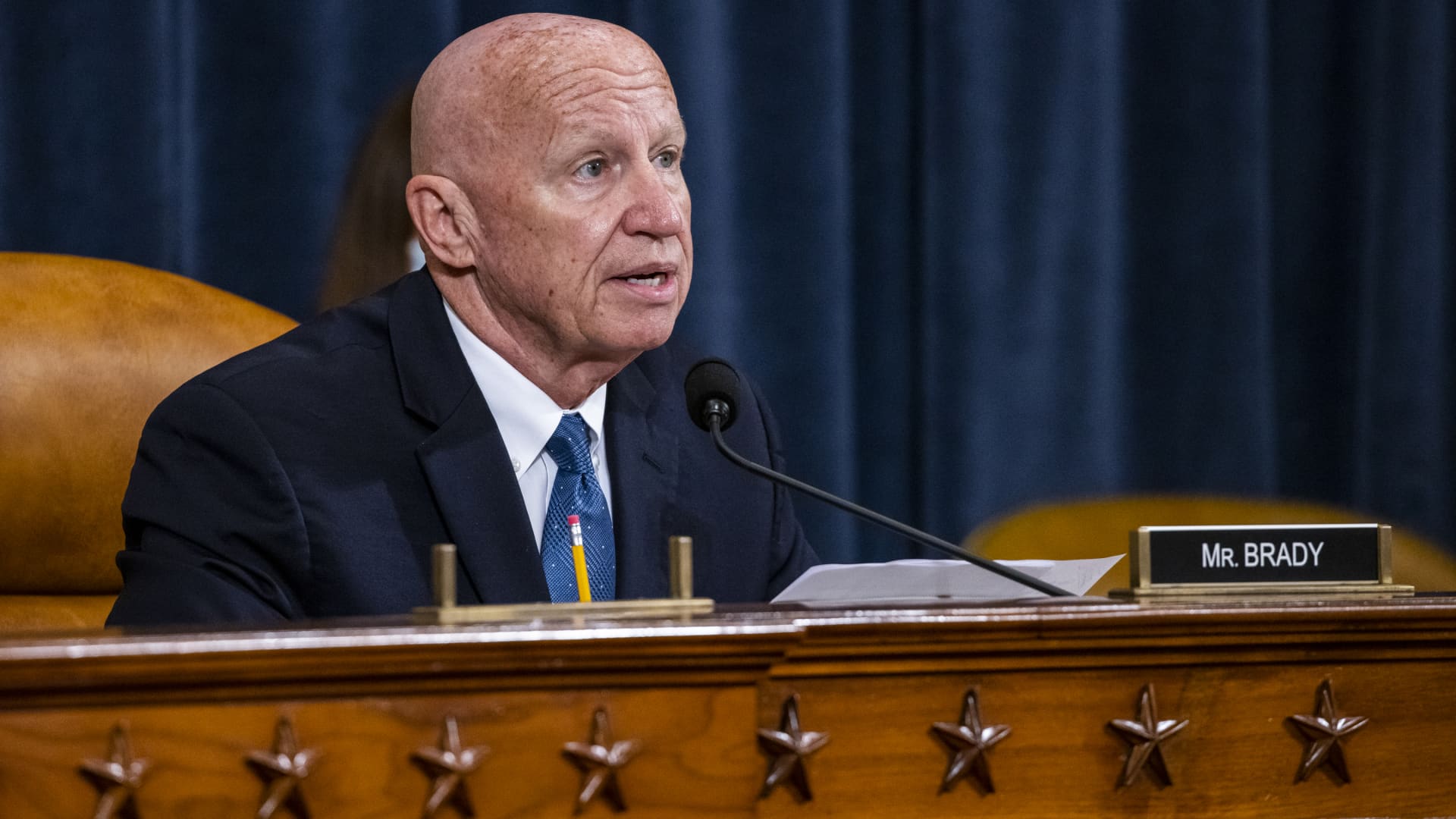
- President Joe Biden's Build Back Better agenda promised a national paid leave plan for workers.
- But pushback on costs have led to the proposal being dropped from legislative negotiations.
- Both Democrats and Republicans spoke out on the issue on Capitol Hill on Tuesday. While both parties support it, they have different takes on how to run it.
A proposal for a national paid family leave program has been dropped from proposed Build Back Better legislation.
But the fight for a policy addressing the issue is not over, judging by activity Tuesday on Capitol Hill.
House Ways and Means Republicans held a hearing on paid leave and child care. Elsewhere, Democratic leaders, including Sen. Kirsten Gillibrand, D-N.Y., appeared at an all-day press conference with the goal of reinserting the proposal back into the bill.
Get Tri-state area news and weather forecasts to your inbox. Sign up for NBC New York newsletters.
President Joe Biden had proposed 12-week national paid leave. Under his measure, the federal government would help cover a portion of employees' salaries.
More from Personal Finance:
Build Back Better would extend tax credit boost for low-income Americans
Here are the 3 big ways Democrats' social plan would expand health coverage
Enhanced child tax credit will continue for 1 more year, per Democrats' plan
But as lawmakers looked to trim the total costs of the $1.75 trillion bill, the paid family leave proposal, which had been estimated to cost about $225 billion, fell out.
Money Report
Sen. Joe Manchin, D-W.V., is one key opponent of the proposal. The reason: costs.
"I will not support a reconciliation package that expands social programs and irresponsibly adds to our nearly $29 trillion in national debt that no one else seems to care about," Manchin said in a statement on Monday.
Separately, Rep. Kevin Brady, R-Texas, Republican leader of the House Ways and Means Committee, said he is concerned about Democrats' continued push for the plan.
"Even if a progressive universal paid medical and family leave program doesn't make it into the final package, Democrats, I think, will not stop, and I worry will hook a new generation of struggling Americans onto government dependency," Brady said during the House Ways and Means hearing on Tuesday.
However, Republicans, like Democrats, do support the idea of paid leave. The key difference between them is who would take responsibility for administering the program — the federal government or the private sector.
On Tuesday, Brady touted a bill that was introduced in May, the Protecting Worker Paychecks and Family Choice Act, which would provide incentives for employers to provide leave.
"Working families deserve access to paid leave and child care tailored to their needs, not Washington's," Brady said on Tuesday.
Other experts who testified at the Republicans' House Ways and Means meeting agreed.
Private vs. public paid leave

Rachel Greszler, a research fellow at conservative think thank the Heritage Foundation and a mother of six children ages 3 through 13, said paring back government intervention could lead to more growth.
"Whereas government paid family leave programs have weeks-long waiting periods, they have rigid rules, they give only partial paychecks, those employer-provided programs can respond at the drop of a dime, and they often provide full paychecks and more flexible leave policies," Greszler said.
The Covid-19 pandemic has increased the focus on paid family leave. A temporary government program was put in place to give certain workers access to paid leave, while compensating their employers through tax credits.
Research from the Bipartisan Policy Center shows caregiving responsibilities have kept many workers out of the workforce. About 15% of workers, or 10 million people, cited that as the reason they stopped working, according to a poll from earlier this year.
Moreover, just 28% of currently employed workers had the option of taking paid leave in the past year, the poll found.
Eligible workers have the ability to take unpaid leave through the Family and Medical Leave Act, which was enacted in 1993.
Meanwhile, nine states and Washington, D.C., are working to put paid leave policies in place.
More states could join them. The hotly contested race for Virginia governor includes Democratic candidate Terry McAuliffe, who has pledged to push for state legislation that would guarantee paid leave.
Federal lawmakers continue to pursue a path for national legislation.
"It's not over until it's over," Gillibrand tweeted on Tuesday, along with a picture at the press conference in front of the Capitol.
"And until the ink on the bill is dry, I won't stop fighting to include #PaidLeave in the #BuildBackBetter Agenda," she said.






